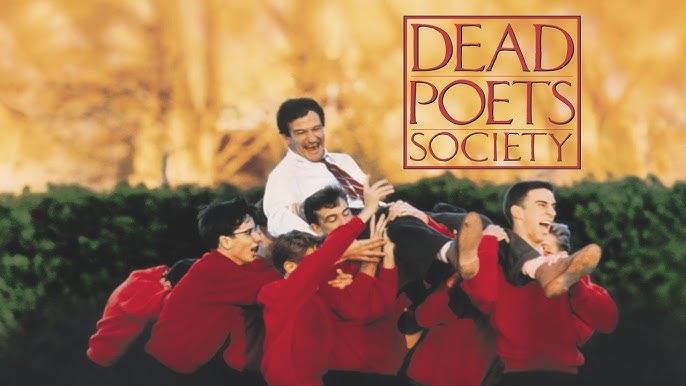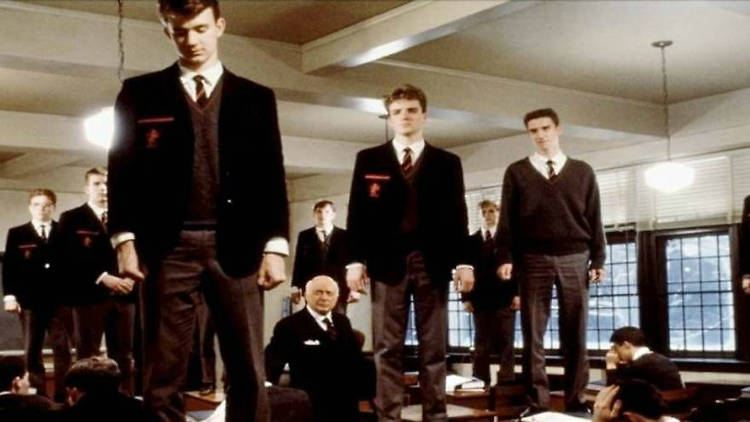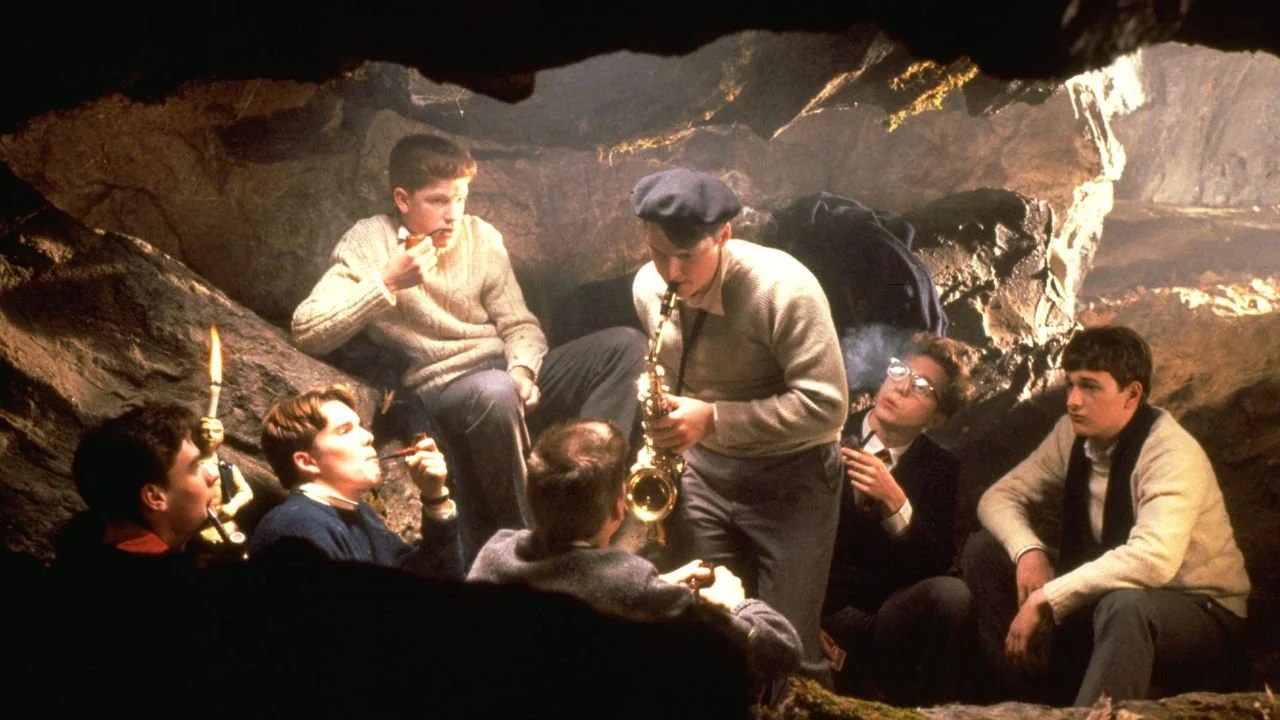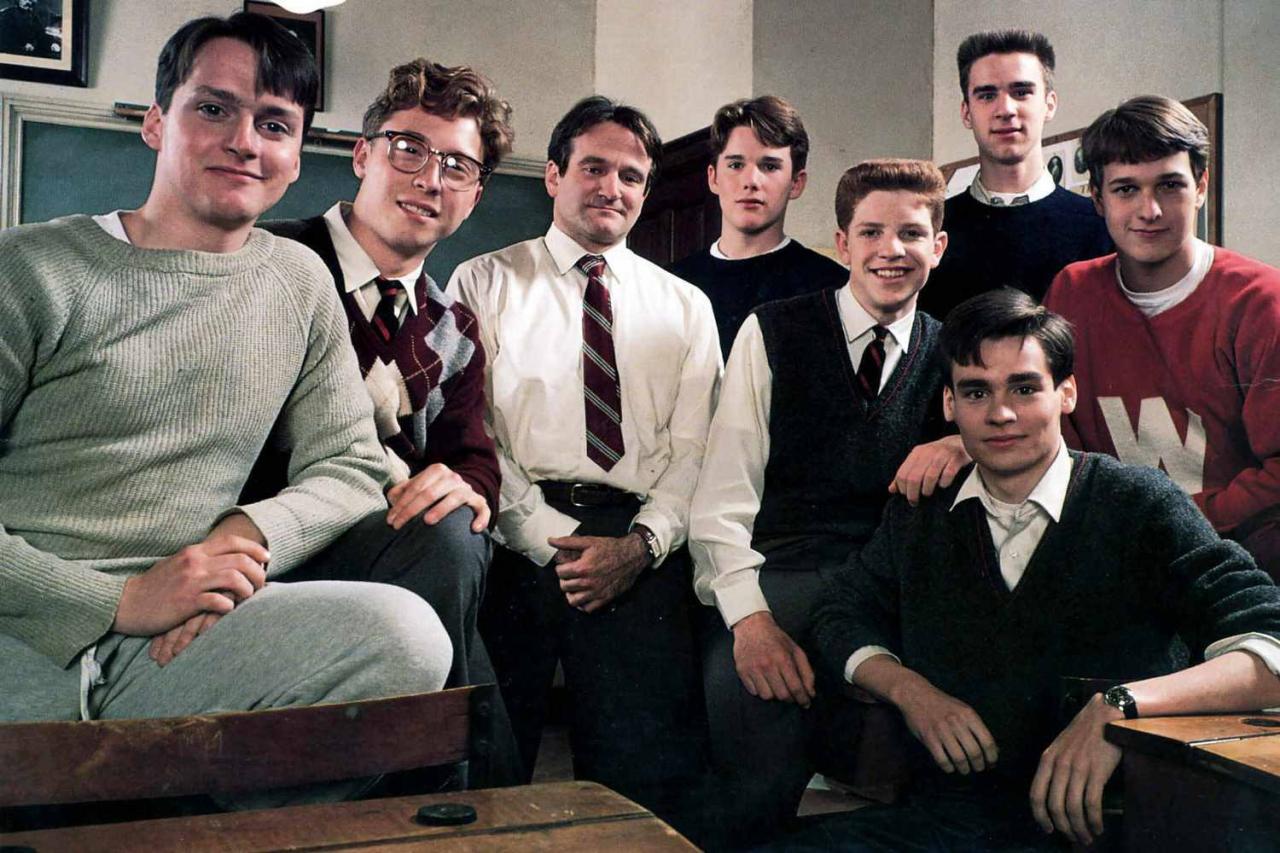
“Dead Poets Society” (1989), directed by Peter Weir and written by Tom Schulman, is a powerful coming-of-age drama that explores the lives of students at a conservative boarding school and their transformative encounter with a charismatic English teacher, John Keating, played by Robin Williams. Set in the late 1950s, the film deals with themes of conformity, individualism, and the pursuit of one’s dreams in the face of societal and familial expectations. With its memorable performances, particularly Williams’ portrayal of the inspirational teacher, the film became an instant classic and is still celebrated for its timeless messages about education, freedom, and the courage to “seize the day.”
The story is set at Welton Academy, an elite and traditional boys’ boarding school where discipline and conformity reign supreme. The students are expected to excel academically and prepare for prestigious futures, often under pressure from their parents. Into this rigid environment enters John Keating (Robin Williams), a new English teacher who brings a radical approach to teaching. Encouraging his students to think independently, challenge authority, and appreciate poetry for its emotional power, Keating inspires a group of students to rediscover their passion for life and learning. The boys—led by Neil Perry (Robert Sean Leonard) and Todd Anderson (Ethan Hawke)—form a secret club, the “Dead Poets Society,” where they meet in an abandoned cave to read poetry and discuss their hopes and dreams. As the boys embrace Keating’s philosophy, they begin to make choices that defy the expectations of their parents and school.
At the heart of Dead Poets Society is the character of John Keating, whose unorthodox teaching methods challenge the rigid, authoritarian system of Welton Academy. Robin Williams delivers a performance that is both inspirational and poignant, using humor, compassion, and passion to reach his students. Keating’s approach to education is radically different from the traditional methods at Welton, and he encourages his students to “make their lives extraordinary.” Through his memorable lessons, such as “Carpe Diem” (Seize the Day), Keating teaches the boys to embrace the beauty of life, to think for themselves, and to pursue their dreams, no matter how difficult the path may be. His impact on the students is profound, and although his methods spark controversy and opposition, his influence helps to shape their futures.
One of the central themes of Dead Poets Society is the tension between individuality and conformity. The students at Welton are part of an environment that values obedience, tradition, and following the rules above all else. They are expected to conform to societal expectations and fulfill their parents’ ambitions. However, Keating’s teachings encourage them to question this conformity and to seek out their own identities. Characters like Neil Perry and Todd Anderson struggle with the pressure to meet these external expectations. Neil, in particular, is torn between his passion for acting and his father’s demand that he pursue a career in medicine. The film poignantly highlights how the desire for individual expression can clash with societal pressures, leading to emotional turmoil and, ultimately, tragedy.
Neil Perry, played by Robert Sean Leonard, is one of the most tragic figures in the film. A bright and talented student, Neil is deeply influenced by Keating’s message of self-expression and individuality. He is passionate about acting and wants to pursue a career in the theater, but his father, Mr. Perry, insists that Neil follow a more traditional, academic path to become a doctor. Despite his desire for independence, Neil is unable to break free from his father’s control, leading to a heartbreaking climax. His tragic fate underscores the tension between the pursuit of personal dreams and the weight of parental expectations. Neil’s story is a powerful reminder of the consequences of suppressing one’s true desires in the face of overwhelming external pressure.

The relationships between the students in Dead Poets Society are also central to the narrative. The formation of the “Dead Poets Society” represents their collective desire to break free from the constraints of their lives and explore new possibilities. As they bond over poetry, literature, and their shared experiences with Keating’s teachings, the students find a sense of camaraderie and mutual support. Todd Anderson, initially shy and unsure of himself, undergoes significant growth throughout the film, ultimately finding his voice and gaining the courage to stand up for what he believes in. The friendships formed in the club offer the boys a sense of solidarity as they face the challenges of their personal lives, especially when the consequences of their actions come to a head. The emotional growth of these characters is one of the most uplifting aspects of the film.

The film culminates in a deeply emotional and tragic ending that underscores the harsh realities of the pressures the characters face. After Neil’s tragic death, the students are forced to confront the consequences of their actions and the limitations of their ability to rebel against authority. In the final scenes, as the students stand on their desks in a silent tribute to Keating and the lessons he taught them, the film captures both the poignancy of their defiance and the sadness of the losses they have endured. The ending serves as a powerful commentary on the consequences of rigid societal structures, as well as the cost of individual freedom in a world that often values conformity over self-expression. Keating’s message lives on in the students, but the tragic events that unfold demonstrate the painful sacrifices that can accompany the pursuit of personal truth.

Dead Poets Society (1989) remains one of the most enduring and impactful films about the struggles of adolescence, the quest for individuality, and the power of education. Directed by Peter Weir and brought to life by a stellar cast, particularly Robin Williams as the unforgettable John Keating, the film continues to inspire audiences with its powerful message about the importance of self-expression, independent thought, and the pursuit of dreams. By addressing the pressures of conformity and the consequences of repressing one’s true identity, Dead Poets Society resonates with anyone who has ever faced challenges in balancing personal desires with societal expectations. Its legacy as a film that encourages us to “seize the day” and live authentically remains as relevant today as it was when it first premiered.
